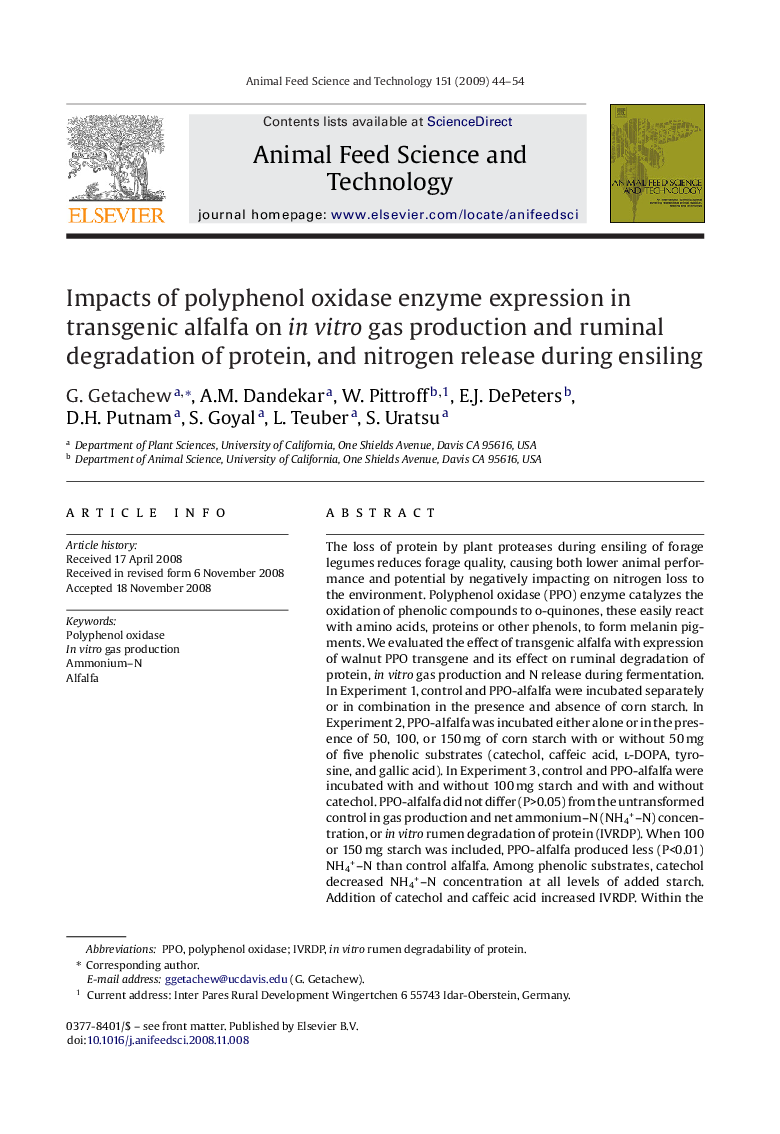| کد مقاله | کد نشریه | سال انتشار | مقاله انگلیسی | نسخه تمام متن |
|---|---|---|---|---|
| 2420286 | 1552458 | 2009 | 11 صفحه PDF | دانلود رایگان |

The loss of protein by plant proteases during ensiling of forage legumes reduces forage quality, causing both lower animal performance and potential by negatively impacting on nitrogen loss to the environment. Polyphenol oxidase (PPO) enzyme catalyzes the oxidation of phenolic compounds to o-quinones, these easily react with amino acids, proteins or other phenols, to form melanin pigments. We evaluated the effect of transgenic alfalfa with expression of walnut PPO transgene and its effect on ruminal degradation of protein, in vitro gas production and N release during fermentation. In Experiment 1, control and PPO-alfalfa were incubated separately or in combination in the presence and absence of corn starch. In Experiment 2, PPO-alfalfa was incubated either alone or in the presence of 50, 100, or 150 mg of corn starch with or without 50 mg of five phenolic substrates (catechol, caffeic acid, l-DOPA, tyrosine, and gallic acid). In Experiment 3, control and PPO-alfalfa were incubated with and without 100 mg starch and with and without catechol. PPO-alfalfa did not differ (P>0.05) from the untransformed control in gas production and net ammonium–N (NH4+–N) concentration, or in vitro rumen degradation of protein (IVRDP). When 100 or 150 mg starch was included, PPO-alfalfa produced less (P<0.01) NH4+–N than control alfalfa. Among phenolic substrates, catechol decreased NH4+–N concentration at all levels of added starch. Addition of catechol and caffeic acid increased IVRDP. Within the in vitro rumen simulated system, PPO-alfalfa did not affect protein catabolism. This could be due to the lack of endogenous phenolic substrates in alfalfa that binds proteins and reduce ruminal degradation. When measured using TCA method, silage fermentation reduced true protein level by 240, 130, and 150 g/kg in control, PPO-alfalfa, and red clover respectively. When measured using sodium tungstate, silage fermentation reduced true protein by 180, 140, and 40 g/kg in control, PPO-alfalfa, and red clover, respectively.
Journal: Animal Feed Science and Technology - Volume 151, Issues 1–2, 12 May 2009, Pages 44–54